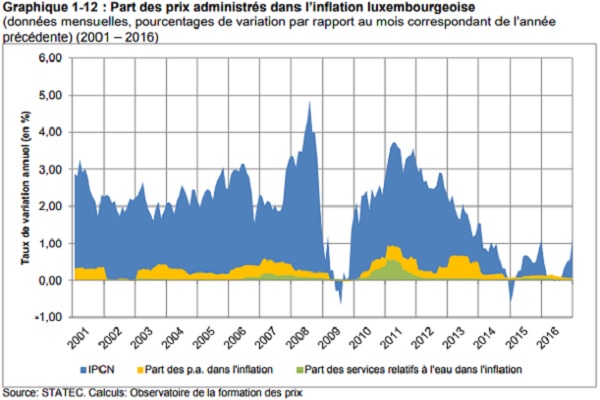
The Luxembourg Ministry of Economy’s Observatory for the Formation of Prices has presented a report dedicated to the taxi sector following the entry into force of the new law in September 2016.
The Price Commission of the Consumer Council met on 25 July 2017 within the framework of the work of the Price Observatory, which presented a report related to the new taxi law aiming to reform the sector, which was in its transitional phase until the end of February 2017.
The reform of the sector aims for a new legal framework for taxi services and above all to eliminate the number of illegal taxis. The management of licenses for the operation of taxis is no longer provided by the municipalities, but centralised by the state as the sole competent body. The law introduces the principle of tariff freedom, and the customer can freely choose any taxi.
Prior to the entry into force of the new law, the prices of taxi services in Luxembourg were set by the Grand Ducal Regulations (GDR). These tariffs have been regularly adjusted following the evolution of the costs to be borne. However, as of April 2017, and consequently after the transitional phase provided for by the new law, Statec found, in the calculation of the Consumer Price Index (CPI), a slight decrease in service prices of taxis in Luxembourg. Following the liberalisation of the prices of taxi services, there is also a greater diversification of tariffs between the different players, depending for instance on traffic conditions, flat rates, and reservations via mobile applications.
The Observatory of Price Formation also carried out a simulation with the objective of comparing the observed evolution of prices of taxi services with a simulated evolution of the costs to be borne by a company. According to this simulation, the price of transport by taxi for a consumer has evolved in a similar way to the costs to be borne by a taxi company between 2004 and the end of 2012. Only during the last four years, ie between 2013 and 2016, has the price of taxi services for the consumer increased faster than costs according to the simulation. This could be explained by two major components of the costs to be borne by a taxi company: the slow-down of wage developments in Luxembourg and the sharp fall in fuel prices since 2013.
This first preliminary analysis of the prices of taxi services in Luxembourg after the entry into force of the new law at the end of 2016 can only be considered as an intermediate balance sheet: the price observatory will continue to follow price developments in the next few years before making a more detailed assessment.








